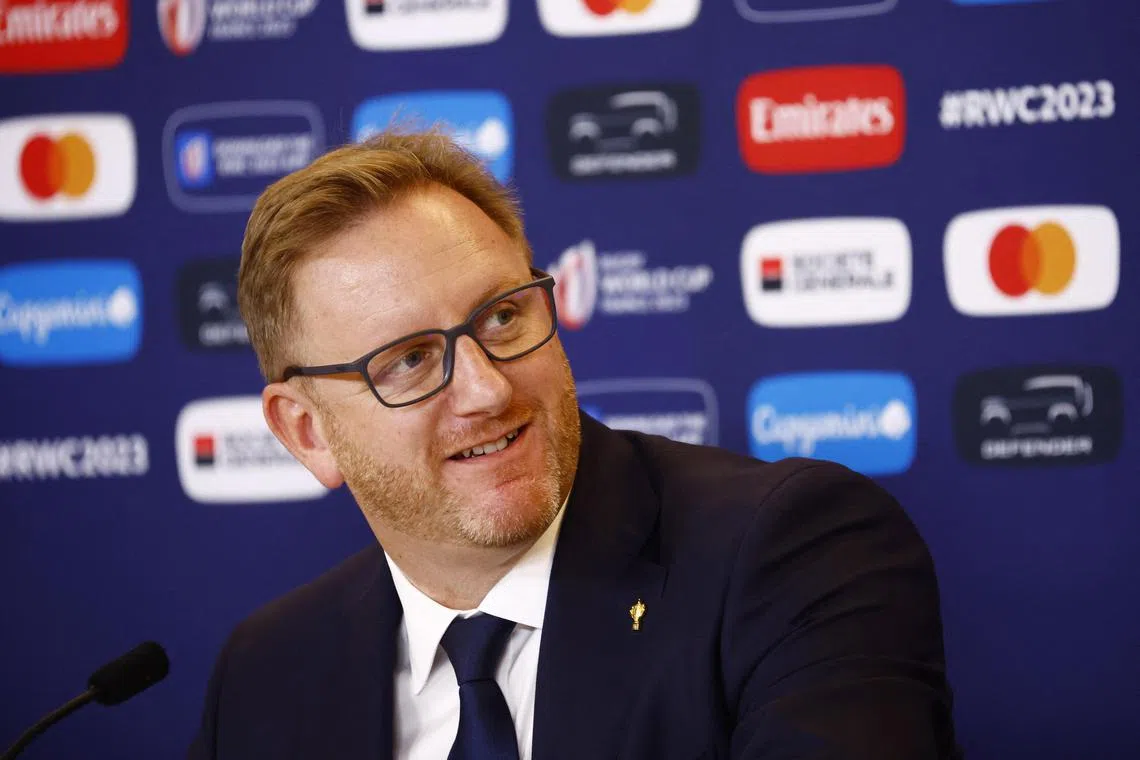Rugby to adopt ‘smart’ mouthguards to protect against head injuries
Sign up now: Get the biggest sports news in your inbox

World Rugby chief executive officer Alan Gilpin.
PHOTO: REUTERS
PARIS – The rugby authorities will start using “smart” mouthguards to help protect players from head injuries, the sport’s global governing body said on Monday.
World Rugby will use the smart mouthguard technology to alert independent pitchside doctors about potential concussions.
The data supplied would then be used by the doctors when performing the head injury assessments.
The assessments will determine whether or not a player who has suffered a suspected concussion can return to the field of play.
The in-game alerts sent by the mouthguards to the doctors would show whether a player had “experienced a high level of acceleration which could lead to an injury”, World Rugby said in a statement.
“The latest scientific research and expert opinion is telling us one thing: reduce the forces players experience on their heads at all levels of the game,” said Dr Eanna Falvey, its chief medical officer.
“The advances in smart mouthguard technology mean elite players will be better cared for than ever before.”
World Rugby said it is investing €2 million (S$2.9 million) in the technology, which will make its debut in the WXV elite women’s rugby competition in New Zealand from Oct 20 to Nov 4.
Elite players will be required to wear smart mouthguards in training as well as matches.
The governing body is also recommending mouthguard use at all levels of the game across the world and increasing return to play protocols to three weeks.
“We have always said that World Rugby never stands still on player welfare,” World Rugby chief executive officer Alan Gilpin said.
“This latest phase of welfare-related announcements reinforces the fact that, as technology and science-based evidence progresses, we progress alongside it.”
A group of more than 200 former rugby players, mostly professionals, have launched a claim against World Rugby and the governing bodies of England and Wales.
They allege that the governing bodies failed to take reasonable steps to protect players from potential brain injuries caused by repetitive blows.
Steve Thompson, a World Cup winner with England in 2003, is among the former players to have brought the case.
The 45-year-old former hooker has previously spoken publicly about conditions he developed following his rugby career, and said that he regretted playing the sport.
Rylands Garth represents over 250 rugby union players with brain damage, including Thompson, former Wales captain Ryan Jones, as well as 100 rugby league players, as part of a separate but similar potential claim against the Rugby Football League.
Claimants range from in their 20s up to their 70s.
Worrying symptoms in numerous cases from both rugby union and league, said Garth, include chronic depression, aggression, significant memory loss and incontinence. AFP, REUTERS


